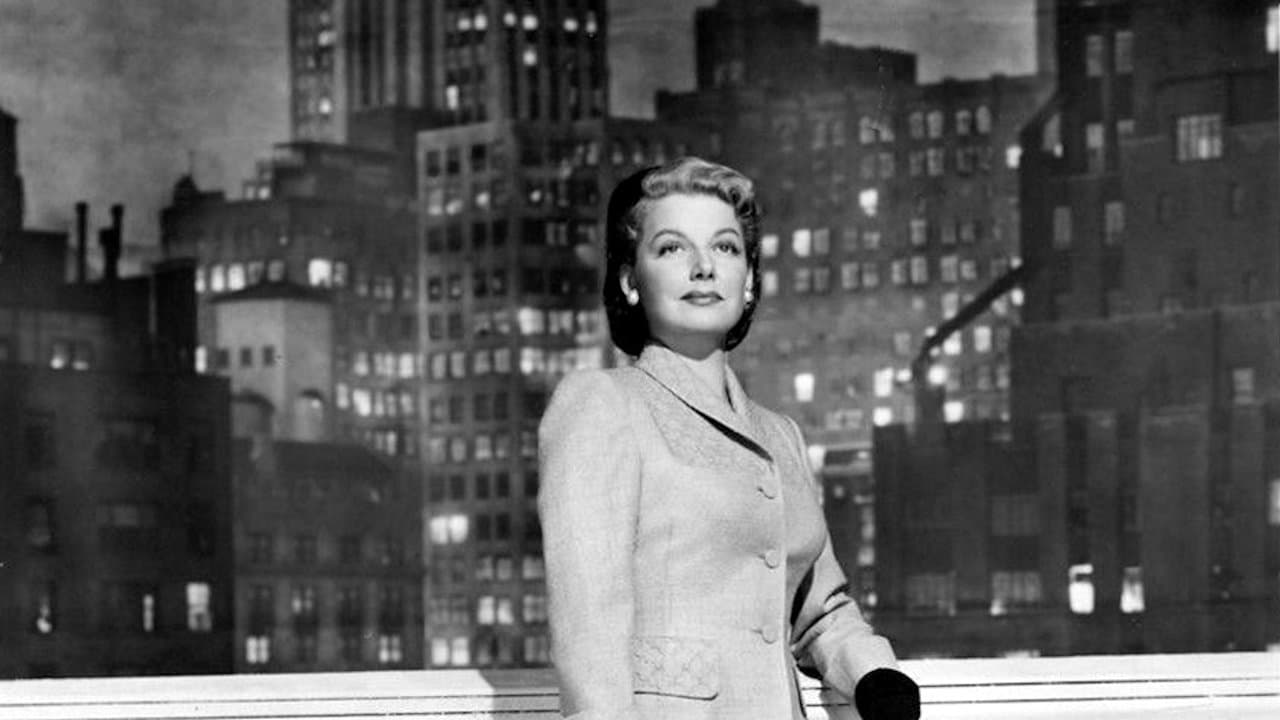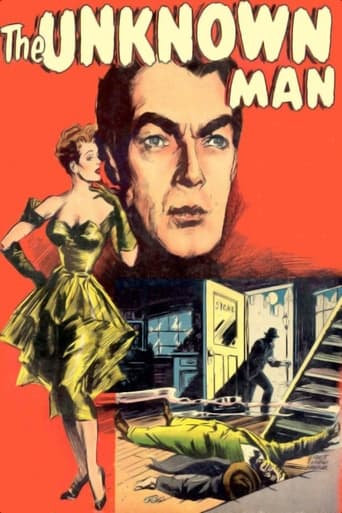Interesteg
What makes it different from others?
Matcollis
This Movie Can Only Be Described With One Word.
GarnettTeenage
The film was still a fun one that will make you laugh and have you leaving the theater feeling like you just stole something valuable and got away with it.
Ogosmith
Each character in this movie — down to the smallest one — is an individual rather than a type, prone to spontaneous changes of mood and sometimes amusing outbursts of pettiness or ill humor.
dougdoepke
Those early scenes between DA Sullivan and attorney Pidgeon are beautifully played. Note how subtly a competitive sense is conveyed, along with professional respect and perhaps mild dislike. So when Pidgeon decides to take Wallchek's (Braselle) case and challenge the DA, we understand why. Pidgeon is excellent throughout. His resonant voice and dignified bearing suggest that Old Testament worship of the law that drives Brad's character. Ditto Sullivan's first-rate performance. Nonetheless, his DA takes a more pragmatic view of the law, one that's importantly tempered by reality.Too bad the rest of the movie doesn't measure up. Crime dramas whether noir or procedure were simply not MGM's strong suit. LB Mayer's philosophy was escapism and celebrity stars, and not even new production chief Dore Schary's background at gritty RKO could modify the entrenched tradition. Director Thorpe was one of Mayer's favorites because of his ability to complete projects under-budget. Unfortunately, that style-less efficiency is on bland display here as the scenes unfold in strictly mechanical fashion. Crucially, there are no visual (noirish) counterparts to Pidgeon's moral dilemma. Then too, the screenplay apes fashion of the day by needlessly involving a "Mr. Big" as the invisible mastermind behind crime in the city. Thus, what starts out as a very real legal dilemma—exonerating a guilty man and what to do about it—evolves into a contrived storyline, not helped by a highly contrived climax in the prison cell. That compelling premise really does deserve a more thoughtful, less tricky, development than what it gets here. Then too, once you think about it, I'm not sure how well the scales of justice actually balance, contrary to what the final scene appears to imply. Anyway, two fine performances are largely wasted in what another reviewer aptly calls a minor film.
MartinHafer
Walter Pidgeon plays an attorney who is persuaded to defend a man accused of murder. This is odd, as Pidgeon is NOT a defense attorney but is still a well-respected lawyer. When he is able to obtain a not guilty verdict, he is horrified to find that the man was guilty after all--and he'd been suckered into using his good name to get the acquittal.Later, when Pidgeon is talking about this case with a friend, he tells the guy that the murderer is part a larger organized crime scheme. And, in a twist, the friend turns out to be the leader of this mob--and rubs it in Pidgeon's face. In a fit of anger, Pidgeon kills the man and frames his client in the process.So far, this is great. I like the idea of a lawyer acting on what is morally right and committing a murder. However, from this point on, Pidgeon's character just muddles his way through the film--doing a really goofy job in the process. Although he set up the murderer to take the rap for the second killing and he knows that the guy is a hardened killer, he inexplicably agrees to defend him once again! And, instead of doing a sane job, he just kind of muddles about and casts much of the suspicion on himself! What is going on here?! Pidgeon's character changes his motivation so often, you'd swear he had Multiple Personality Disorder! As a result of this very weak character, the film ultimately fails--despite starting off with such a wonderful premise.Overall, an interesting time passer that really doesn't make a lot of sense. Too bad.
eronavbj-1
I've seen this film criticized with the statement, "If you can get past the moralizing..." That misses the point. Moralizing is in the conscience of the beholder, as it were. This is a decent film with a standard murder mystery, but with a distinct twist that surfaces midway through. The resolution leaves the viewer wondering, "What would I have done in this position?" And I have to believe that's exactly what the filmmaker intended. To that end, and to the end of entertaining the audience, the film succeeds. I also like the way that the violence is never on stage, but just off camera. We know what has just happened; it's just not served up in front of us, then rubbed in our faces, as it would be today with contemporary blood and gore dressing. Besides, the violence is not the point. The point is the protagonist's moral dilemma, which is cleverly, albeit disturbingly, resolved.
John Seal
Hopelessly hamstrung by the requirements of the Production Code, The Unknown Man is a rather nasty piece of filmmaking, when you come down to it. Walter Pidgeon is fine as the defense lawyer who mistakenly frees a young killer, played with fresh faced ineptitude by Keefe Braselle, but the machinations set into motion by Pidgeon's fatal encounter with the slimy Crime Commission bigwig, played brilliantly by Eduard Franz, are hopelessly unrealistic. That leads some to conclude this is an entry in the noir cycle, but it plays more like a police procedural, with police captain Barry Sullivan successfully sniffing out the truth. Besides Franz and Pidgeon, the acting highlights are provided by Konstantin Shayne as an elderly shopkeeper victimized by shakedown men. Ultimately, though, The Unknown Man is a lesson in Old Testament justice, with murderers and their victims filling in as Sunday School sermon illustrations. If you can get over the moralizing, however, this is a decent minor picture.

